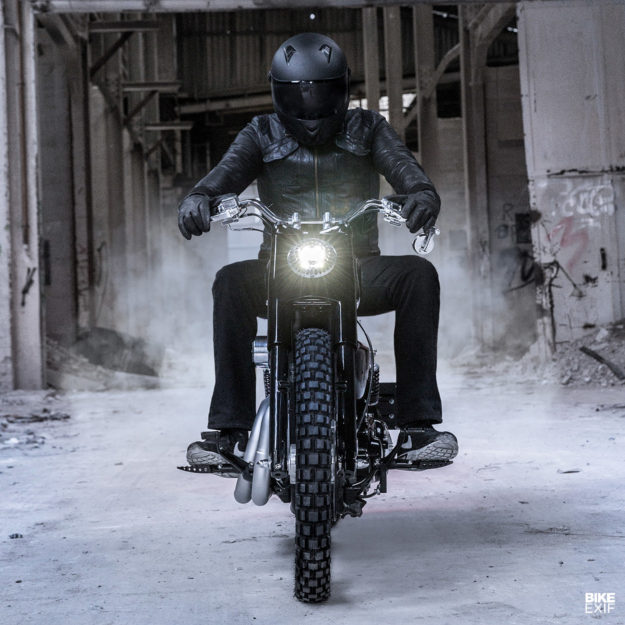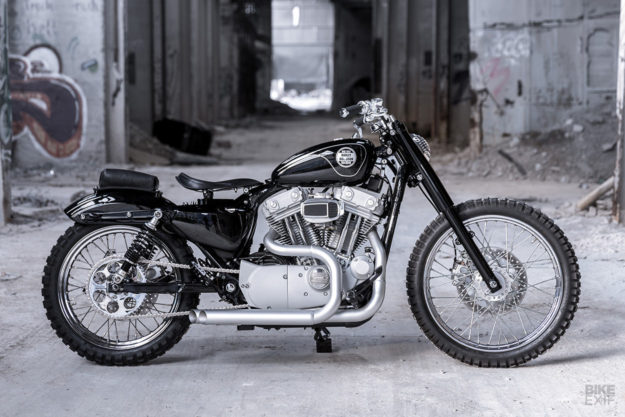
Julian von Oheimb is one of our favorite custom Harley builders. There’s a low-key elegance about his work at One Way Machine, which is a million miles away from the gaudy excesses of OCC and the bagger subculture. He’s a favorite with AMD World Championship judges too, with a remarkable three podium wins since 2013.
Another fan of Herr Oheimb is Switzerland-based businessman Patrick Warnking. Warnking has been a Harley rider for 20 years now, and when he was searching for something a little different, he decided on this Harley Sportster with a subtle scrambler flavor.
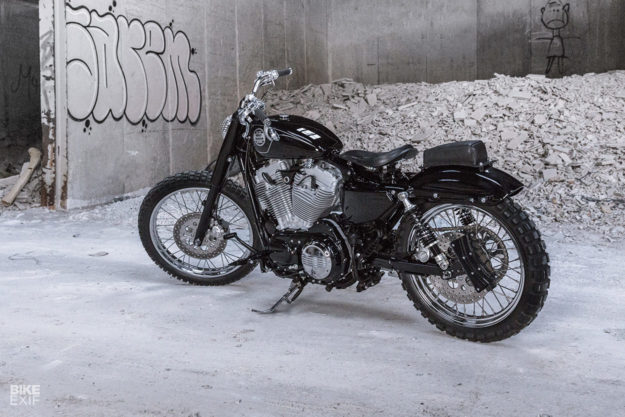
Julian is always on the lookout for carbureted Harley Softtails, especially those built just before the wholesale switch to fuel injection in 2007. “They must be originals, in untouched condition and with low mileage,” he says.
But three years ago, he came across a 2004 Sportster model, German delivery, and with just 822 clicks on the odometer. Although OWM specializes in Softails, Julian bought it. “It’s hard to understand, but just a few years ago the Sportster was still considered to be a ‘woman’s bike’ in Germany,” he says. “But in southern Europe and Asia, it has long been popular with men.”
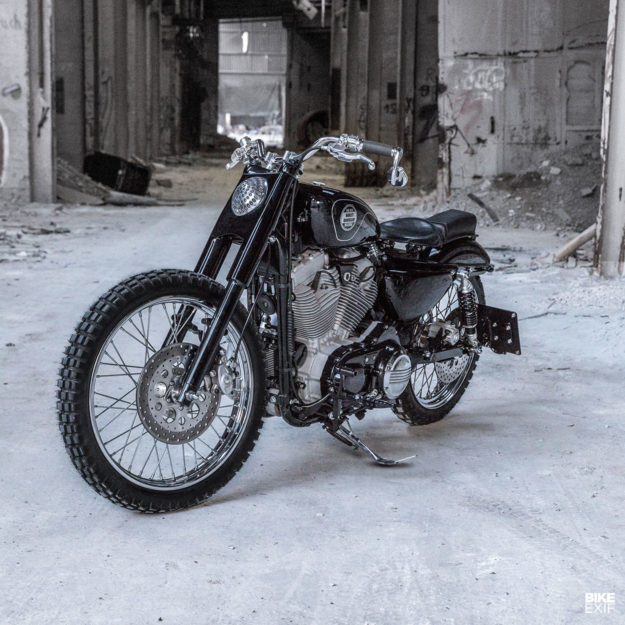
OWM builds are at the higher end of the market, and generally speaking, only men are willing to swim in those rarified waters. So Julian kept the Sportster at the back of his shop, and continued building Softails.
But now, the Sportster is an established favorite with Männer. “And since it was the sixtieth anniversary of the Sportster line last year, I felt it was time to build the first OWM Sportster,” says Julian.
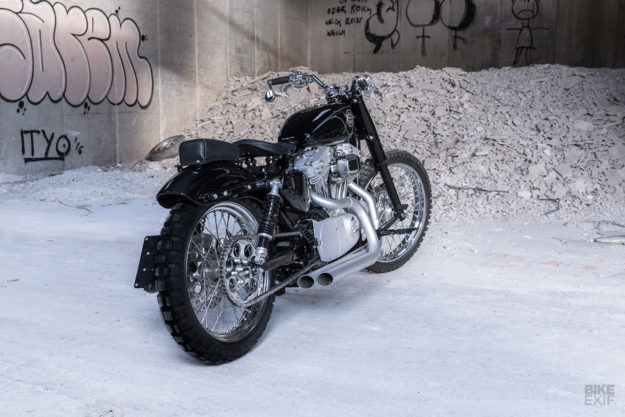
In Germany, Sportsters customized for men often have wide rear wheels and high bars. But every bike Julian spotted had kept the original wheelbase and the small wheel diameter. “The bikes seem rather small when ridden by men of central European size.”
“The first consideration was to change the vehicle geometry—so the bike looks ‘right’ with a rider of average size—while still keeping the scrambler theme,” says Julian.
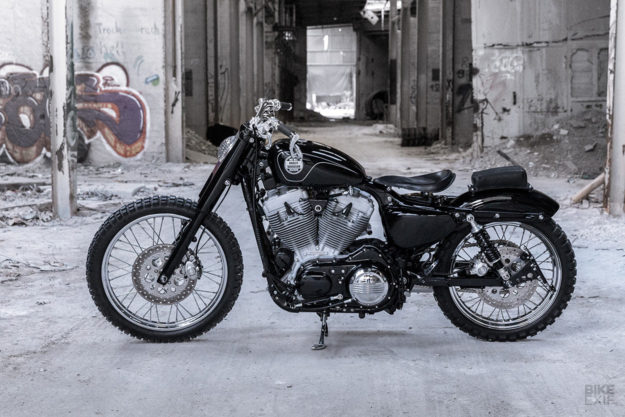
The easiest way to extend the wheelbase would be to lengthen the swingarm, and install a raked out set of triple-trees. But that doesn’t suit the scrambler vibe. So Julian installed a chain drive setup, using a longer chain than usual, and extending the wheelbase by moving the rear wheel backwards a little. He also increased the wheel diameters, going for a 21″ front and a 19″ rear.
After the stance was sorted, the bike was completely dismantled in typical OWM fashion for cleaning. Stock parts were modified and new sheet metal was hand-fabricated: the rear fender, the fork sleeves, the engine mount and the black box cover.
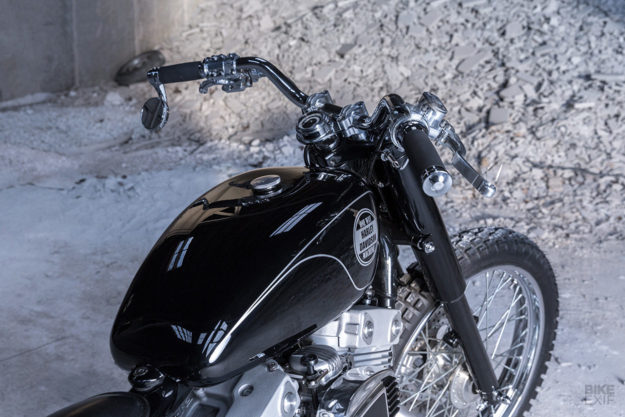
The tank, however, is a Triumph original from the 1950s. “There was a lot of work done on that,” Julian reveals. “We tunneled it, and fitted it with a new petcock flange, mounts and a gas cap assembly.”
After finishing the sheet metal and raw assembly, the individual parts were painted, powdered, chrome plated and polished.
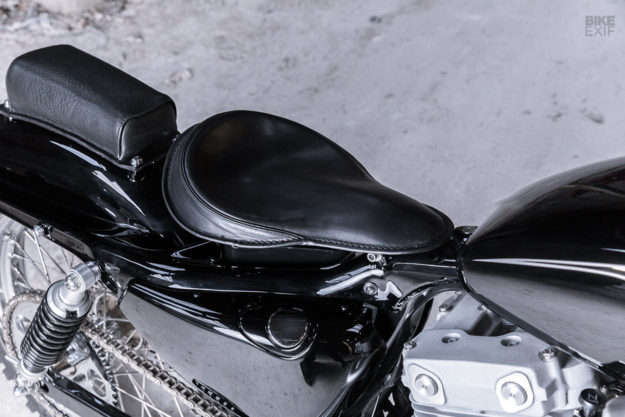
“The next challenge was the tank-seat transition,” says Julian. “And the Sportster’s electrical system is very open and unattractive, which doesn’t fit the clean and minimalist OWM vibe at all. So we looked for ways to re-install and hide the electrics.”
Many hours of work (and Euros) have gone into this Sportster—way more than originally expected. But OWM has a strict policy of no compromise, and relatively few bolt-on parts are used.
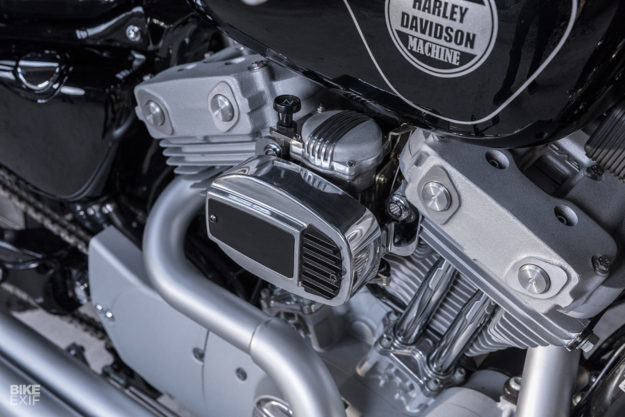
Keen eyes will spot Rough Crafts risers and brake and shifter pegs, Beringer hand controls, and a Biltwell clutch cover. The gorgeous ‘Mini Ham Can’ air cleaner is from LC Fabrications.
There’s a neat hint of Brat Style in the seating arrangement: a main saddle (from Custom Chrome Europe) and a passenger pad behind (from Japan’s Easyriders). The simple but effective exhaust is from Parts Europe and the tiny speedo is from every top builder’s favorite instrument maker, Motogadget.
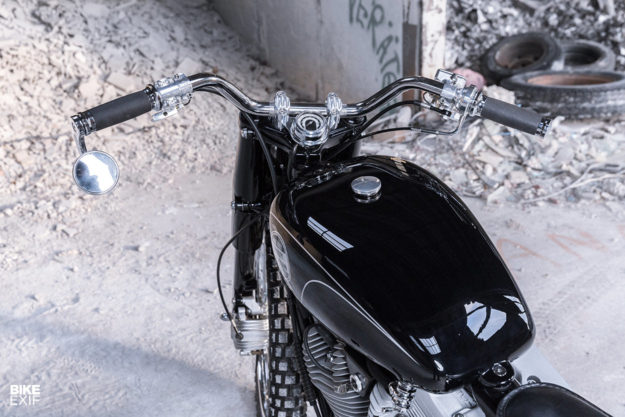
The result is a well-styled urban scrambler, with a narrow silhouette and high seating position—perfect for weaving through inner-city traffic. “But you can also give the bike its spurs,” says Julian.
“Thanks to the ’cross tires, the adjustable shocks and adjustable fork springs, you can also go off-road. The suspension can be adjusted in just a few minutes, depending on your requirements.”
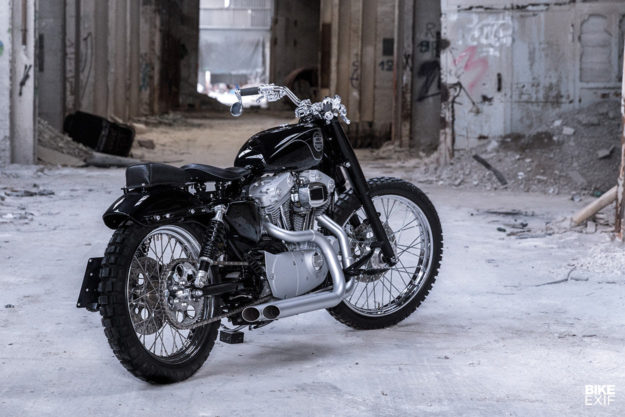
For zipping around Zürich and the thickly forested hills beyond, riding a wave of torque from a carbureted V-twin, it doesn’t get much better than this. Julian von Oheimb might be known for his show-winning bikes, but it looks like One Way Machine can build a real-world machine too.
One Way Machine | Facebook | Images by Clave Rodriguez Photography
